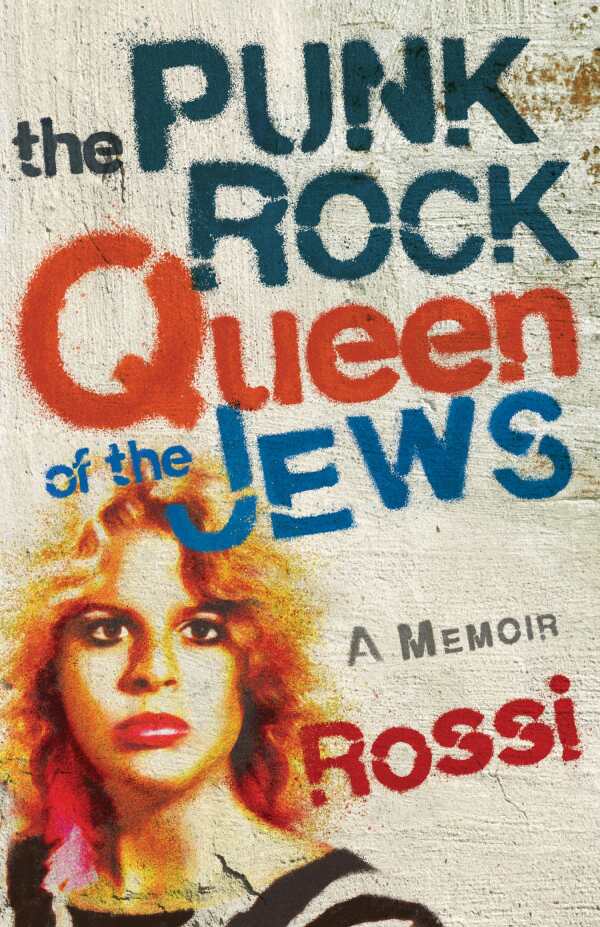The Punk Rock Queen of the Jews
A Memoir
- 2024 INDIES Finalist
- Finalist, LGBTQ+ (Adult Nonfiction)
Brash and exuberant, The Punk Rock Queen of the Jews is a memoir about faith, emergence, and individuality.
Rossi’s lively memoir The Punk Rock Queen of the Jews recalls her tumultuous adolescence and years of enforced exile among New York’s Lubavitch Hasidic Jewish community.
Growing up in the New Jersey suburbs, Rossi was urged to “live a good Jewish life and marry a nice Jewish boy.” But by 1981, Rossi had fallen in love with punk and New Wave music; she smoked, sold pot, and had more interest in girls than boys. After she ran away at age sixteen and was arrested, her parents forced her to join a community of Lubavitch Jews in Crown Heights, Brooklyn. Under the auspices of “deprogramming,” she lived with a rabbi’s family, attended Hebrew school classes and synagogue, and followed a strict religious code.
Alternating acute observations with humor, Rossi recounts her experiences being “held captive in Chasidland.” The bleak buildings along Eastern Parkway resembled “the artwork of a kid who owned only brown crayons.” “Redbeard,” the rabbi who supervised Rossi, warned that he had watchful spies who’d tell him if she ever left the neighborhood without his permission. Rossi was also instructed to dress with modesty and be covered “from collarbone to calf,” with the ultimate objective of an arranged marriage, having many children, and effecting devout adherence to Judaism. But she remained high-spirited and instead moved to freer Manhattan upon reaching legal adulthood.
Insider observations, as of instances of marijuana use and bisexuality among Hasidic men, pair with commentary on the inequality of divorce rights within the community. There are also fascinating recollections of the then leader of the Lubavitchers, Rabbi Schneerson, who was an advisor to politicians, celebrities, and throngs of followers. Rossi depicts the beloved rabbi as being “calm and majestic” amid a “sea of yarmulke’d men beating their chests as if to pack his every word into their hearts.”
Beyond Crown Heights, the book captures the energized chaos of 1980s New York City. Urban decay and crime are contrasted with revelry at clubs, gay bars, and loft exhibits, and the then-misunderstood illness AIDS has a pre-epidemic appearance. And the wide cast is engrossing; it includes Redbeard, Rossi’s Israeli friend Anya, and Hector, who salsa dances behind bulletproof glass at the local bodega. Rossi’s indomitable mother is seen sitting shiva when her other daughter married a Christian while sending Rossi care packages filled with oversized underwear, coupons, and enough food “to feed Pittsburgh.”
At first, the narrative is centered in defiance, reflecting on how Rossi pushed back against her controlling family and Crown Heights’ insular surroundings. Rage often supplants her fear and shock, as in a scene in which she was acquaintance-raped at gunpoint. But as Rossi matures, the book’s tone becomes more resonant: she finds a career as a chef, cares for her ailing parents, commits to a relationship with a woman, and practices liberal Judaism at an LGBTQIA+ synagogue.
Brash and exuberant, The Punk Rock Queen of the Jews is a memoir about faith, emergence, and individuality. From contemplating the 1991 Crown Heights riots to memories of providing food to Ground Zero workers after the 9/11 attacks, the stories herein exemplify Rossi’s own interpretation of Rabbi Schneerson’s encouragements to be forgiving, positive, and do “more mitzvahs.”
Reviewed by
Meg Nola
Disclosure: This article is not an endorsement, but a review. The publisher of this book provided free copies of the book and paid a small fee to have their book reviewed by a professional reviewer. Foreword Reviews and Clarion Reviews make no guarantee that the publisher will receive a positive review. Foreword Magazine, Inc. is disclosing this in accordance with the Federal Trade Commission’s 16 CFR, Part 255.

